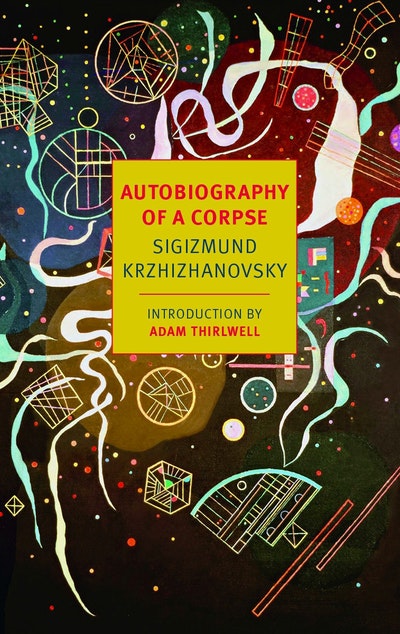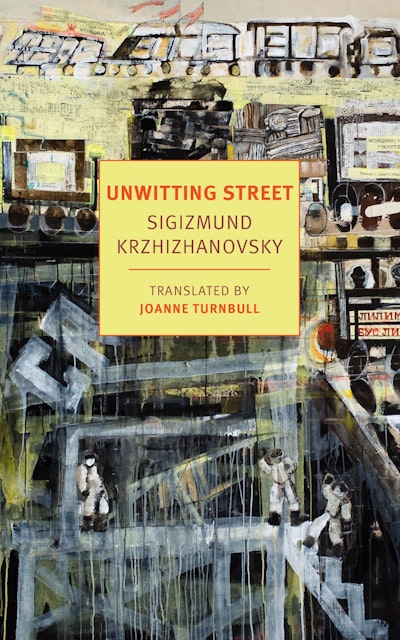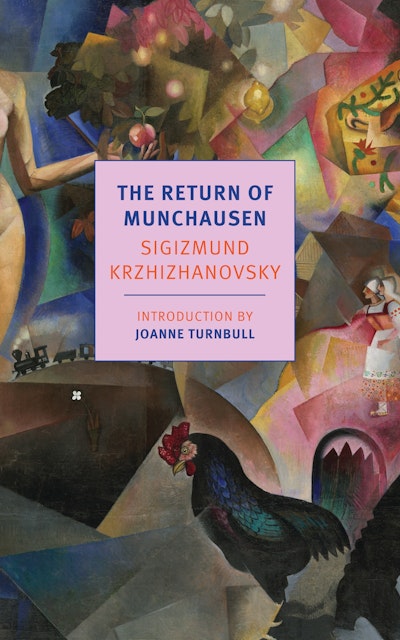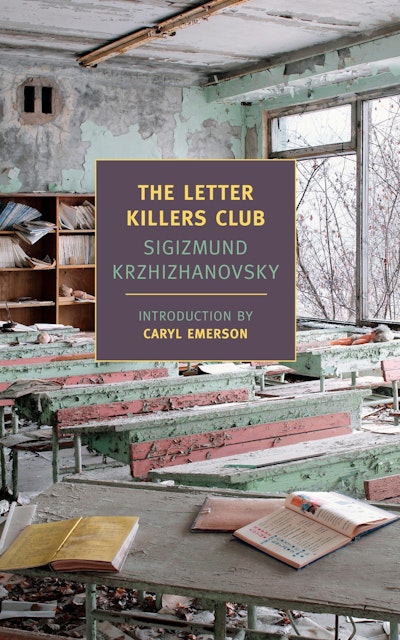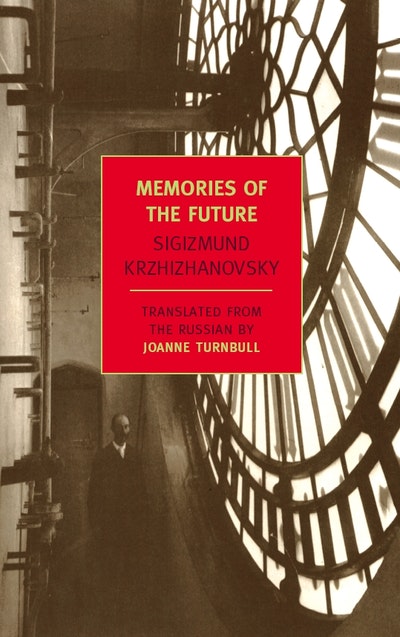- Published: 15 November 2013
- ISBN: 9781590176702
- Imprint: NY Review Books
- Format: Paperback
- Pages: 256
- RRP: $35.00
Autobiography of a Corpse
- Published: 15 November 2013
- ISBN: 9781590176702
- Imprint: NY Review Books
- Format: Paperback
- Pages: 256
- RRP: $35.00
"There is no blackness in this author's humour, not even in such a story as 'Autobiography of a Corpse', which in its mild and amiable way, gives the impression of being what the title says it is. For a writer Krzhizhanovsky himself sounds an unusually nice man. His work, subtly subversive, as his editor rightly calls it, only started to be published as a whole in 1989, when what might be described as all the usual suspects, Kafka and Borges, Swift, Gogol and of course Samuel Beckett, were promptly trotted out by way of comparison. Krzhizhanovsky has certainly much in common with them, but the flavour and personality of his writing is all his own, as if it were a subdued and friendly personal conversation. His method, as he put it, was not to borrow from reality, but to 'ask reality for permission to use his own imagination.' " --The Spectator
"Krzhizhanovsky wanted to perform imaginary experiments with the nature of time and space. Outside, in the streets, the Communist state was busy performing such experiments for real. In response, Krzhizhanovsky's prose has a recklessly unstable tone in which delighted examination of impossible worlds can slip into ferocious political sarcasm.... It is a method for investigating how much unreality reality can bear." --Adam Thirlwell, The New York Review of Books
"A Russian writer whose morbidly satiric imagination forms the wild (missing) link between the futuristic dream tales of Edgar Allan Poe and the postwar scientific nightmares of Stanislaw Lem...an impish master of the fatalistically fantastic." --Bill Marx, The World
"Krzhizhanovsky is often compared to Borges, Swift, Poe, Gogol, Kafka, and Beckett, yet his fiction relies on its own special mixture of heresy and logic." --Natasha Randall, Bookforum
"There was probably no worse time and place to be a postmodernist sage than in 1920s Russia. Still, bibliophiles like to believe that genius makes itself known, regardless of social pressures, and in the case of Ukraine-born Sigizmund Krzhizhanovsky, they may have a point--only it took about six decades for anyone else to catch on.... Krzhizhanovsky is also hilarious, and one wonders whether that might have troubled the Bolsheviks as much as anything in his work. Krzhizhanovsky understood the potency of juxtaposing wit with terror and the sacred with the profane." --Los Angeles Times
"There is no blackness in this author's humour, not even in such a story as 'Autobiography of a Corpse', which in its mild and amiable way, gives the impression of being what the title says it is. For a writer Krzhizhanovsky himself sounds an unusually nice man. His work, subtly subversive, as his editor rightly calls it, only started to be published as a whole in 1989, when what might be described as all the usual suspects, Kafka and Borges, Swift, Gogol and of course Samuel Beckett, were promptly trotted out by way of comparison. Krzhizhanovsky has certainly much in common with them, but the flavour and personality of his writing is all his own, as if it were a subdued and friendly personal conversation. His method, as he put it, was not to borrow from reality, but to 'ask reality for permission to use his own imagination.' " --The Spectator
"Krzhizhanovsky wanted to perform imaginary experiments with the nature of time and space. Outside, in the streets, the Communist state was busy performing such experiments for real. In response, Krzhizhanovsky's prose has a recklessly unstable tone in which delighted examination of impossible worlds can slip into ferocious political sarcasm.... It is a method for investigating how much unreality reality can bear." --Adam Thirlwell, The New York Review of Books
"A Russian writer whose morbidly satiric imagination forms the wild (missing) link between the futuristic dream tales of Edgar Allan Poe and the postwar scientific nightmares of Stanislaw Lem...an impish master of the fatalistically fantastic." --Bill Marx, The World
"Krzhizhanovsky is often compared to Borges, Swift, Poe, Gogol, Kafka, and Beckett, yet his fiction relies on its own special mixture of heresy and logic." --Natasha Randall, Bookforum
"There was probably no worse time and place to be a postmodernist sage than in 1920s Russia. Still, bibliophiles like to believe that genius makes itself known, regardless of social pressures, and in the case of Ukraine-born Sigizmund Krzhizhanovsky, they may have a point--only it took about six decades for anyone else to catch on.... Krzhizhanovsky is also hilarious, and one wonders whether that might have troubled the Bolsheviks as much as anything in his work. Krzhizhanovsky understood the potency of juxtaposing wit with terror and the sacred with the profane." --Los Angeles Times
